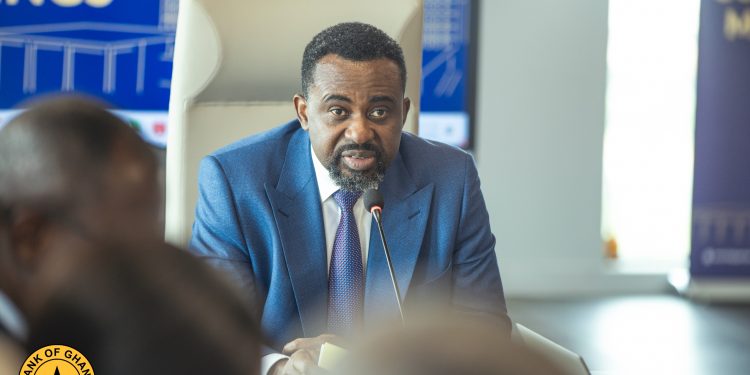On April 19, 2023, Fisheries Minister Hawa Koomson took to the podium at the NAFAG Hall in Tema to announce a new initiative aimed at tackling the pernicious and destructive practice of illegal, unreported and unregulated (IUU) fishing.
From the outset, the minister faced fierce criticism from industry stakeholders, who dismissed her as ill-suited for the job. Her mettle was tested when just a few months into her tenure in 2021, the European Commission (EC) issued a ‘yellow card’ warning to Ghana.
The warning was an indictment of Ghana’s fishing practices, citing rampant illegal targeting of juvenile pelagic species and glaring deficiencies in the monitoring and control of the fishing fleet. The EC expressed concerns that fish caught through IUU fishing might find their way onto the European market.
The minister, in her address, conceded that Ghana’s small pelagic fish stock and marine resources were in a state of severe ‘overexploitation’ as a result of IUU fishing practices.
Artisanal fishers, however, continue to complain that the “minister is only paying lip service” to the problem and has not demonstrated enough commitment to addressing the challenges.

The small pelagic fish comprising anchovies, mackerel and sardines is popularly referred to as the ‘people’s fish’ in Ghana because of its importance to the local economy; directly employing over a million artisanal fishers and women in the value chain combined.
This fish stock, which is the reserve of artisanal fishers, has significantly reduced over the years. In 2020, the Sustainable Fisheries Management research revealed that despite increasing fishing efforts by the artisanal fishing fleet in Ghana’s waters, small pelagic fish catch has fallen by over 85 percent, from the peak in reported landings of 138,955 metric tonnes recorded in 1996.
Scientists have warned that Ghana’s small pelagic stock teeters on the edge of collapse, with a significant impact on 2.7 million people who rely on the marine fisheries for survival.
Despite these alarming conditions of the small pelagic stock in Ghana, an investigation by iWatch Africa’s Gideon Sarpong found that over €40million worth of the fish stock were exported to the European Union (EU) market in 2020 and 2021, with no export restrictions in place to protect the overfished species.
Additionally, the investigation revealed that the European Commission, which had issued a warning to Ghana, failed to implement restrictions on industrial vessels and companies engaged in IUU fishing activities, even though the EU fishery law permitted such action. These findings raise significant questions about the level of commitment by both Ghana and the EU toward protecting the sustainability of the small pelagic fish in Ghana.
Ghana’s Minister of Fisheries, Hawa Koomson, failed to respond to the findings of this investigation and our requests for comment.
Exporting fish from Ghana to the EU – Broken system?
The Fisheries Ministry is responsible for issuing catch certification licenses for fish export to the EU market, said Misornu Yaw Logo, a fisheries expert with the Fisheries Ministry in Ghana.
The certification process is part of the Catch Documentation Scheme (CDS), which is an important system that monitors and verifies the origin of harvested fish and guarantees that they are caught in a sustainable manner in line with local and international regulations, he explained.
However, data provided by Ghana’s ministry indicated that the country exported almost US$200million worth of fish in 2020 and 2021, with 90 percent going to the EU market while EU fisheries data recorded over €250million (US$269million) in fish imports from Ghana during the same period, raising concerns about data inconsistencies.
The Fisheries Ministry could not provide the data requested on small pelagic fish exported to the EU as part of this investigation, but the EU recorded over €40million in import of small pelagic fish from Ghana.
Mr. Logo revealed that Ghana’s certification system has significant flaws, arguing that the catch documentation system “does not comprehensively prevent the export of endangered species”. According to his research conducted in 2022, there exists a discrepancy in the CDS procedure between tuna vessels and trawler vessels in Ghana.
Mr. Logo’s research uncovered that tuna vessels undergo stringent checks as part of the CDS procedure in Ghana. Upon landing, the tuna vessel’s certificates are sent to two units at the ministry: the “Monitoring and Control Surveillance Unit and Fisheries Scientific Survey Division for further examination, ensuring data accuracy and compliance with both national and international regulations,” he noted.
In contrast, trawler operators bypass these additional checks and proceed “directly to the Catch Certification Unit of the ministry (a unit under Ghana’s Fisheries Ministry)” to prepare their consignment for export.
Dr. Edwin Kelly Ofori-Ani, the board secretary of the Ghana Industrial Trawlers Association (GITA), echoed Mr. Logo’s concerns, emphasising the “absence of a mechanism within the Fisheries Commission to determine real-time value of fish exported out of the country”.
He regarded the figures provided by the ministry as highly “deceptive” and called for greater transparency.
“The volumes are not accurate, and the values are under-declared,” he said.
As part of industrial trawlers’ self-regulatory efforts, Dr. Ofori-Ani proposed that the association itself “validates the catch return” before it is submitted to the Fisheries Commission for export.
EU failure to sanction companies engaged in IUU.
Over the years, several industrial trawlers not authorised to target small pelagic fish in Ghana have been arrested for deliberately targeting this fish stock in significant quantities, causing severe overfishing and depletion of fish stock reserved for artisanal fishers.
One such vessel, the Lu Rong Yuan Yu 956, beneficiary owned by Chinese company Rongcheng Ocean Fishery, was re-arrested in Ghanaian waters in 2020 for illegally targeting small pelagic fish using under-size nets.
The actions of these trawlers have sparked concern and outrage among experts and researchers.
Dr. Isaac Okyere, a respected researcher at the University of Cape Coast, describes the dire situation, stating: “The small pelagic fish they catch is no longer treated as by-catch. Instead, it has become the primary target, while demersal fish has been relegated to by-catch status”.
This inversion of the fishing hierarchy has had devastating consequences for the local ecosystem and the livelihoods of artisanal fishers.
Documents obtained as part of this investigation revealed that two fishing vessels: the Lu Rong Yuan Yu 928 and Lu Rong Yuan Yu 907 – beneficially owned by Rongcheng Ocean Fishery – had been involved in fishing violations in the first quarter of 2023 and had been fined GH¢90,000 (US$8100) by the regulators in Ghana.
Investigators also discovered that as of 2022, Rongcheng Ocean Fishery had authorisation from the EU to export fish products to their markets.

In 2020, a report by Environmental Justice Foundation, an NGO that monitors economic and environmental abuses, revealed multiple cases in which trawl vessels authorised to export to the EU were involved in illegal activities in Ghana.
Despite these illegalities and the extensive legal powers granted to the European Commission to combat IUU fishing by sanctioning third-country vessels, an official from the European Commission responded to the investigation, emphasising the preference for “dialogue with countries, particularly the Republic of Ghana”, rather than taking direct action against specific companies.
This response has left many questioning the efficacy of the EU’s approach to combating IUU fishing.
As the biggest “market for seafood caught by the Ghana-flagged trawl fleet, EU consumers are inadvertently supporting illegal practices and severe overfishing in Ghana’s waters”, the report by the Environmental Justice Foundation concluded.
The EU official went on to emphasise the importance of the catch certification scheme as a crucial tool in the fight against IUU fishing.
However, in light of numerous criticisms directed toward the EU catch scheme, Steve Trent, CEO of the Environmental Justice Foundation, is advocating for “a risk-based approach to seafood inspections to keep out imports linked to illegal fishing, human rights abuses or the destruction of ocean ecosystems”.
Trent went on to suggest that: “Imports to the EU from the Chinese-owned trawl fleet operating in Ghana should certainly be regarded as high risk, closely scrutinised and, if any evidence of illegal fishing is found, refused entry”.
Impact on fishers, ineffective penalties & regulatory oversight
Francis Adam, President of the Central Region Fishermen, expressed deep concern over the continued neglect of calls for reform in Ghana’s fisheries sector despite the ‘yellow card’ warning issued by the European Union (EU).
Adam highlighted the alarming decline in catches by artisanal fishers in the country, making the last decade particularly most challenging.
Reflecting on his three decades in the fishing business, Adam expressed his frustration about the dramatic reduction in catches, emphasising the “absurdity” of the “absence of export restrictions for their fish.”
“Everybody is allowed to target our fish, without serious consequences. This is ridiculous,” he said.
Currently, more than 200 coastal villages in Ghana rely on fishing as their primary source of income, exacerbating the gravity of the situation. According to the World Bank, the average annual income per artisanal canoe has plummeted by up to 40 percent in the past decade, plunging thousands of fishers and their dependents into abject poverty.
Adding to the complexity of the issue, many companies in Ghana possessing export licenses can freely export small pelagic fish to the EU without any restrictions. This has raised concerns about the sustainability of Ghana’s fish stock and the exploitation of the endangered species.
Mr. Frank Aihoon is the Managing Director of Panofi Company and President of the Ghana Tuna Association. His company currently holds an export license to the EU. He acknowledged that his company exports small pelagic and tuna but, maintained that he adheres to the regulations.
“I know the small pelagic fish stock is an endangered species,” he said, adding: “There are people who are using the wrong fishing net, which is affecting the fish stock, especially the trawlers.”
Disturbingly, documents obtained during this investigation also showed that eight industrial trawlers were fined a combined GH¢492,000 in the first quarter of 2023 for various fishery infractions, a figure significantly lower than what is required by law. Meanwhile, information on whether these fines were paid remains undisclosed.
A review of the licensed vessel list for the second quarter of 2023 showed that vessel owners: Wannimas Complex, Obourwe & Co. Ltd, and Nduman Fishing had been re-licensed to operate in Ghana’s waters, raising questions about the effectiveness of the ministry’s penalties and regulatory oversight.
Mr. Aihoon underscored the urgent need for enforcement of existing laws, warning that failure to do so would have far-reaching consequences for the entire fishing sector, not just the trawlers.
“The regulators need to enforce the laws because when the EU bans Ghana it will affect everyone in the fishing sector, not only the trawlers,” he argued.
For fisherman Francis Adam and his association members, the fishing trade that was once the backbone of thriving and a vibrant local economy is now a pale shadow of itself.
“We can’t survive for long with all these challenges, we simply can’t, something must be done; perhaps the EU, the minister and her team must do more,” he said.
















